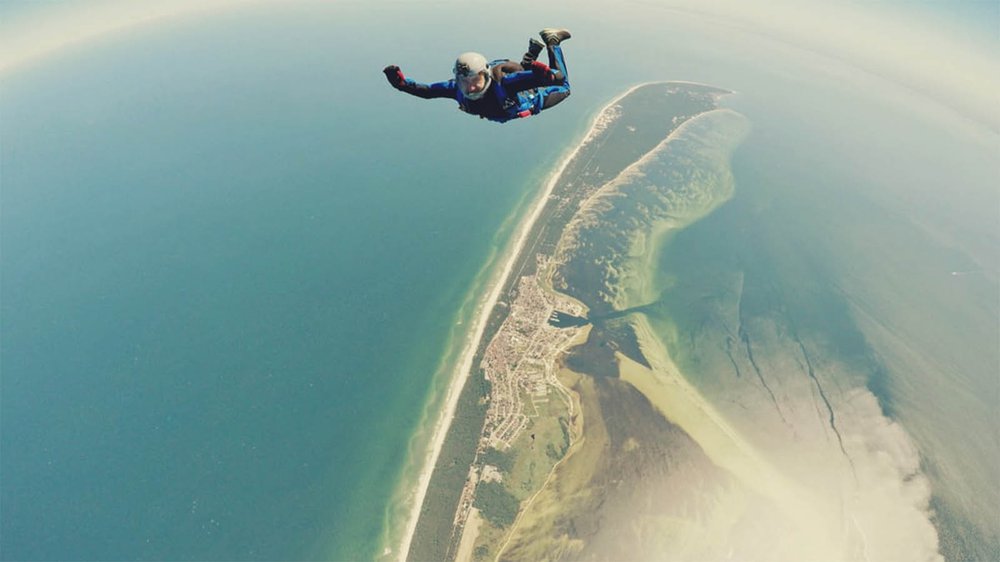"People are capable of flight. The problem is the landing. "
--Mark Yozart
Acrophobia applies to people with "extreme, irrational and persistent fears of heights and situations associated with them," according to the APA.
I've often been confused by this. Flying doesn't scare me, and I've tried skydiving more than once (solo—this was before tandem jumping, though that’s a great name for an acoustic duo). Clear-walled elevators are a little scary but more exciting than palm-sweating. Balconies on the 23rd floor? Pit-of-the-stomach, light-headed, get me out of here scary. L'appel du vide is a French phrase which roughly means call of the void. It captures my problem in a lovely few words that sound like romance. I'm not afraid of heights, I'm afraid of the commanding urge to jump.
For some of us, that urge is vague or even absent. And it’s mystifying, like Why would you want to do that? For others (and I raise my hand here), it’s hypnotic. It’s not a made-up thing. I’ve read articles about it, you know, neuroscience and such. And I have great respect for their research as I’m kind of a science geek. But let’s suppose that our best research and data-driven efforts to rationally explain something irrational are not much use to regular folks, especially those of us who experience the magnet of l’appel du vide.
The addiction of binary choices
Thomas Hobbes suggested that we humans have no default setting for morality. We simply see things we want as good, things we don’t want as evil. I don’t buy his argument, but in times of anxiety (like withdrawal for an addict), our mind narrows to a laser-like focus on feeling better, no matter what that takes. So, when confronted by the void (as in vide), some of us have a peculiar wiring that is desperate for the evil, in this case, fear of falling (not falling itself, but the fear), to go away. Voila! Jumping gets rid of that evil (Hobbes’s what we don’t want) directly and quickly, and, like an addict, all other consequences disappear.
We all have a tendency to frame our choices as binary - either/or. In a strange short-circuit of surreal (and bizarre) impulsiveness, jumping clears away discomfort. If we can use one-or-the-other as a model, we don’t have to risk the toil of possibility. Is there an inherent pathway to poor thinking built into our tendency to fear ambiguity?
I work with the recovery community. I know that one of the behaviors that addiction erodes is consideration for consequences. And this applies to the behavioral addictions of dictators, who always discard the gray for the black-and-white as a societal l’appel du vide. And if they can make us fearful enough, we jump.
This also applies to mild dictators like controlling parents, fear-driven managers, even scout leaders who see themselves as large and in charge. They can only succeed with our complicity, our desire to turn ourselves over to certainty. If we surrender, we’ve traded the discomfort of self-examination for the illusion of safety, the land of us and them, either/or, the void as a solution.
Ambiguity and true safety
What if the way out of this self-defeating but alluring l’appel is to trade certainty for ambiguity as a badge of courage? My friend Steve Pearlman calls this environment the security of uncertainty. Ask yourself if you have ever fled from uncertainty to denial or blame. Maybe l’appel du vide provides a metaphor to explain those who deny science, or unapproachable supervisors. People who refuse to wear masks in public. Conspiracy adherents. Trolls on social media.
“Too often we enjoy the comfort of opinion without the discomfort of thought,” suggested John Kennedy. Could it be that some of us choose to jump rather than face ambiguity? When we jump to escape fear, even metaphorically, we move away from courage. What if embracing the possibility of new ideas is not a sign of weakness but a broadcast of strength. L’appel du vide is the leap into absolutes, and that plummet lands in spiritual darkness.
When we feel absolutely certain, and when that certainty has a strong feeling attached (e.g., Nobody can convince me otherwise, or and the horse you came in on!), consider the possibility that you are succumbing to the whispering voice of l’appel du vide: “Discomfort is bad, I tell you. Jump and it will end.”
It certainly will.
Thanks for reading. Please tune in to the back2different podcast—conversations from all over the world about finding light at the end of the pandemic tunnel. It’s completely pro bono, btw.
About the author

Mac Bogert is President of AZA Learning and a regular columnist for the Learning Counsel. He began his career as an English teacher. For the past 25 years, Mac has focused on the intersection of leadership and learning. In between, he is a musician, professional actor, yacht charter captain, staff development consultant, curriculum designer and author of Learning Chaos.











